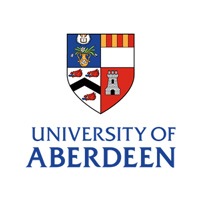fees waived
Economics and Gaelic Studies, MA (Hons)
University of Aberdeen, United Kingdom
Subject ranking
UK / Guardian 2025 12th
UK / Guardian 2025 13th
UK / Times 2025 15th
Costs
food & rentS$17.2K / year
Entry requirements
Scholarships
Limited quantity
Information
Code
Intakes
Website (External)
Programmes
Information
Duration
2029
Course summary
Economics and Gaelic at Aberdeen adds to your thorough grounding in the global economy and how it works with an in-depth study of Gaelic, Scotland’s oldest living language and its origins and culture. The language, intellectual skills and Scottish perspective you will develop – combined with your strong business and economic skills – will give you an extra advantage for your career in business or another sector, especially with a Scottish or international dimension.In Economics, you will explore the microeconomics of business and society, macroeconomics of the world economy and economic problems in political, social and historical contexts, with a strong emphasis on applied learning. You will thrive in the dynamic, international environment of our Business School of over 40 nationalities and be taught by experts including leading petroleum economist and government adviser Professor Alex Kemp and our health economists whose work influences Scottish and UK policy decisions on public health.Gaelic is an area of particular strength at Aberdeen. We have been teaching Scottish Gaelic (Gàidhlig) and culture for one hundred years, led by teachers and researchers passionate about Gaelic and whose work directly influences Scottish policy on keeping Gaelic alive, healthy and important in Scotland today. Our students and staff play an important role in the Gaelic-speaking community in the north of Scotland through clubs, activities, networks and organisations. The skills you will gain through this combination will add to your strong appeal to business employers with additional career options for graduates fluent in Scottish Gaelic including teaching, Gaelic development, teaching, arts management and media. View all modules on the programme page to find out more about what you will be studying and when. University of Aberdeen modules are designed to give you breadth and depth to your degree. The range of modules you study will allow you to become proficient in all subjects which are directly relevant to your degree giving you greater career options. The use of various forms of assessment and learning environments facilitates the development of generic transferable skills enhancing student employability.Students are assessed by any combination of three assessment methods: coursework such as essays and reports completed throughout the course; practical assessments of the skills and competencies they learn on the course; and written examinations at the end of each course. The exact mix of these methods differs between subject areas, years of study and individual courses.Honours projects are typically assessed on the basis of a written dissertation.Modules
Assessment method
View all modules on the programme page to find out more about what you will be studying and when. University of Aberdeen modules are designed to give you breadth and depth to your degree. The range of modules you study will allow you to become proficient in all subjects which are directly relevant to your degree giving you greater career options.
A local representative of University of Aberdeen in Singapore is available online to assist you with enquiries about this course.

